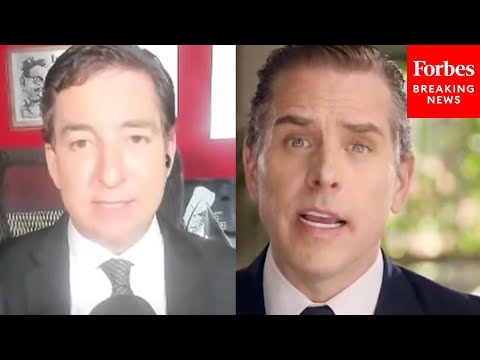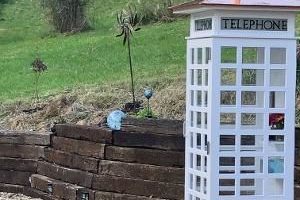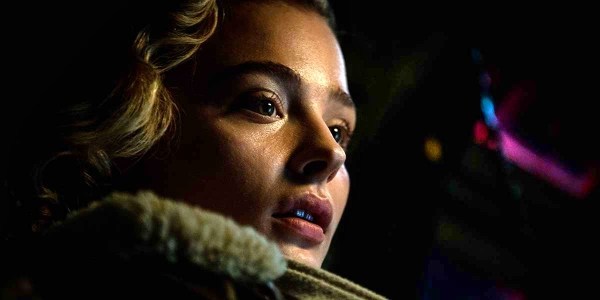Interview with Jennifer Cooney and Tracy Wren of RAIN BEAU’S END
Rain Beau’s End is a film released this year about misunderstandings and acceptance. A lesbian couple adopt a son, Beau, and struggle with his diagnosis of an XYY chromosomal mutation which supposedly leads to violence in men.
Beau’s mothers struggle with this diagnosis, which deeply impacts their relationships — both with each other and with him. Rain Beau’s End explores the difficulty and necessity of acceptance, and the harm of self-fulfilling prophecies, as we move through Beau’s childhood.
Film Inquiry had the opportunity to interview the writer and producer of Rain Beau’s End, Jennifer Cooney, and its director, Tracy Wren.
Frances Maurer for Film Inquiry: Rain Beau’s End is about a pretty specific misunderstanding of genetic and mental health, with the XYY chromosomal anomaly stressed in the synopsis. Why did you choose to make a movie on this issue specifically?
Jennifer Cooney: The original story was by Joe Orlandino, of Chicago Atlas Media Ventures. He was the producer that brought together this whole project. When he hired me to write the script, he already had a one-sheet, which is basically a one-page bullet point list of how he saw the story progressing, and character names, and how he saw them evolving. So XYY was baked into the original idea.
It evolved over time, how we used and incorporated it into the story. When Tracy came onto the project as the director, we fine-tuned it even more. We contacted AXYS, a chromosomal disorder organization, and worked with them.
Tracy Wren: We spoke with the president, and I spoke with a lot of people to try to understand what it was really all about.
Jennifer Cooney: Because we wanted to be both accurate and sensitive. Really, as our story and our film took shape, it became more about the misunderstanding of the disorder as time progressed, and about how the negative labeling of Beau at a very young age became a self-fulfilling prophecy.
I noticed that I don’t think, it ever said in the film “this is a myth,” though the moms mentioned that the research wasn’t conclusive. Are you hoping that this film will lead people to do their own research about XYY?
Tracy Wren: Yes, and hoping that it will help destigmatize XYY, even in the school system. Basically, a lot of people still hold onto the beliefs that were around in the 80s and 90s. It was thought of as the “super-male” gene, and that these guys were “tough guys” and possibly overly aggressive.
Really, the more scientists study it, there’s nothing hard and fast that they can say. One in a thousand men has this, and most never know. It’s not hereditary, it’s a genetic anomaly at conception.
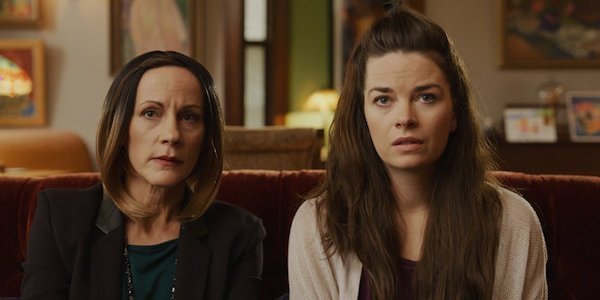
Jennifer Cooney: I think the really important thing to remember is that this is a feature film, a dramatic narrative, not a documentary. We didn’t want to exposition-drop via dialogue. We did our best to incorporate the facts through natural dialogue of the therapist, and to communicate the evolution of the understanding of the anomaly as time progressed.
In my opinion, we’ve done a good job of peppering the narrative with facts, and I think the keen listener will pick up on what the research has done over the last thirty or forty years.
Was it a difficult decision to show parenting in a way that I think isn’t usually done, having parents in conflict over their child instead of constantly happy?
Tracy Wren: It was certainly more realistic. I’m a parent, and a lot of my friends are parents, and it’s challenging. As your child goes through different stages, there’s controversy everywhere. I think that certainly comes out in these two characters. Their approaches are very different because their approaches to life are so different.
Similarly, it was interesting to me that as a parenthood film, this movie focuses closely on the parents’ relationship with each other, and how the child influences that, instead of really showing interactions with the child. What led you to this creative choice?
Jennifer Cooney: Very early on, when I was hired to write the script about five years ago, I had rewatched Hitchcock‘s Rebecca where Rebecca is the main focus of the film, but she’s never in it because she’s dead. That struck such a chord in me, that if we were to take Beau in that light and never show him, it would emphasize the fact that not only the diagnosis is all that you see, but we’d also be able to hone in on how his essence affects the relationship between these two women.
So often, with family films, when you’re able to see the child, and how they bicker or interact with the parents, you’re giving very specific snapshots to the audience and saying, “this is what happened, what do you think?” With this approach, we were able to see how something like an argument with the kid is affecting the parents. So it’s a different perspective, and I think it really works with the overall film and how we were able to develop the relationship between the two women.
By only showing their reactions to him rather than himself.
Jennifer Cooney: His essence being the character instead of himself, yeah.
NOTE: TOTAL SPOILERS BELOW. Watch Rain Beau’s End on LesFlicks first if you don’t want it spoiled.
At the end, Beau really does a 180, and that’s the first time we hear his voice. How do you reconcile his extreme violence and hatred toward his parents, the slurs and the physical assaults on them, with the way that he heroically dies? Is this a statement on forgiveness, on reconciliation?
Tracy Wren: I think partly so. I think the character of Jules is always more forgiving. It’s really Hannah who comes around to forgiveness at the end. My interpretation is that once Beau was in the military and was assigned to a really difficult situation, he grew as a person, and he found an outlet for his strength. He was no longer just fighting his two parents.
That’s true with a lot of kids. You’ll hear parents say, well he or she is a street angel and a house devil. It’s pretty common, actually. They just didn’t know their son. They knew one side of him, but they didn’t know him fully.
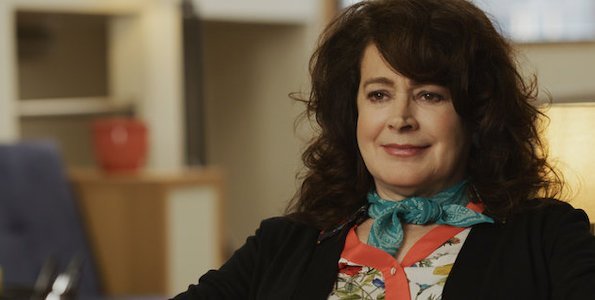
I think he kept that from them. It wasn’t until he got some distance from them that he was able to build a bridge back and give them that opportunity for love and forgiveness.
Jennifer Cooney: To add to that, for me, the whole arc of Hannah’s character is one of self-loathing to self-love. We see her, in act three, make the decision whether to wear the dress and do her old pattern of charisma and seduction to get them to do what she wants, or be true to herself, which Jules was always basically begging both her and Beau to do. That’s the decision that Hannah makes at the end, and that’s what ends up saving the day.
For me, her finding that self-love is what allows her to find that place with Beau, where she can finally love him for who he is. The culmination of everything in the story is self-love allowing you to love others more purely.
It kind of reads like a tragedy, that as soon as she’s able to do that, it’s taken away from her. But at the same time, the final scene when Hannah and Julia are relaxing kind of seems like the first moment of peace, and Beau isn’t with them. Do you have any insights on that? Did he have to die for the story to be complete? Was it better for them in the end, or is it just really a tragedy?
Tracy Wren: The tragedy is that that is what it took for them to get to know him, that it took so long, and by the time they did it was too late for them to have a physical relationship. But that happened, and that’s how it was.
I wouldn’t say it’s a tragedy. It is a little bit, but it’s good that they at least came to an understanding about their son. They were able to weather the storm and stay together. I don’t think they were the best parents in the world. What do you think, Jennifer?
Jennifer Cooney: We only see the parts of their parenting that were tumultuous. I think that every parent does their best with what they’re equipped with, and that’s why the scene with Hannah’s father, played by Ed Asner, was so important. We were able to see what Hannah grew up with. He says whatever comes to the top of his head, he’s rough around the edges, and it’s hard to see the softness. He led her to be an unforgiving perfectionist. We watch her be that we watch how she became like that, and we watch her overcome it.
And the original story by Joe Orlandino always had Beau dying at the end saving Jules, and the name of the film being Rain Beau’s End. So I immediately started playing with the idea of the end of a rainbow, and the pot of gold that isn’t there once you reach it because the pot of gold was within you, and things like that. To me, this was the best way to incorporate all of those things into the film, and I think it really comes across in a rewarding, bittersweet way.
Tracy Wren: I don’t think it’s a bad thing that there’s some controversy at the end of the film. I think it’s okay to have a question mark at the end, and that speaks to its complexity.
What are you hoping that people will ultimately take from this film? Do you hope that they’ll come away with a question, or with new ideas about acceptance?
Tracy Wren: My hope is that people might question their own parenting and that they might become more tolerant and accepting. I hope that XYY might lose a little bit of its stigma, that people might do some investigating on their own and discover that it’s still a big unknown.
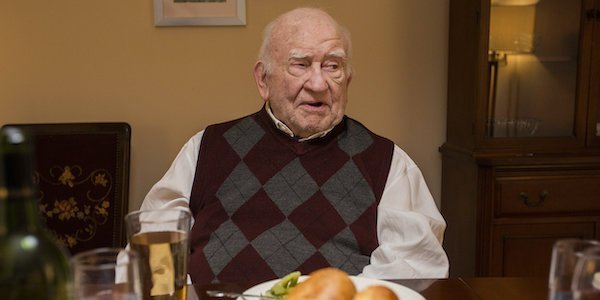
We’ve all got something, and no one’s perfect, so we do the best with what we have. If you’re rigid, like Hannah, it’s harder to be that way than it is to be flexible. You’re going to crack sometime, and she does.
Jennifer Cooney: I think our film asks the question, how do you accept the unacceptable? What I hope people take away from it is their definition of unacceptable. I hope that they look into it further, and realize that it’s based in roots within them.
If there are parts of you that you don’t accept, you’re ultimately going to see that reflected back to you. But when you’re truly willing to accept yourself all the way, you stop seeing fault in others, and you’re able to accept unconditionally.
Finally, is there anything else you want to mention?
Tracy Wren: I want to say that we had a great cast. The actors were so wonderful. Not just the stars, like Ed Asner and Sean Young, who were phenomenal to work with, but also Janelle Snow who was Hannah, and Amanda Powell who played Jules. They were tremendous in every way.
Our director of photography Kevin Otterness did a fine job, and everyone worked so hard. We had phenomenal music by Enzo de Rosa, who’s Italian, and the music was actually composed in Italy and recorded with a live orchestra. That’s one of my favorite parts of the film. There’s a song called “Falling” which incorporates Hannah’s Theme, and that was recorded by the Prague symphony.
There was just a lot of creativity. When I’m directing actors, I try to keep the boundaries wide so they have a lot of freedom to interpret the characters in their own way. I think they did, and it was just fabulous.
Did actors’ choices make any big changes to your initial vision?
Tracy Wren: I think when Ed Asner came on board, that totally solidified the character of Hannah’s dad. Once I knew he was going to play that role, I understood Hannah a lot better.
Jennifer Cooney: I would say that all of the actors’ choices did nothing more than deepen the characters and make their essence come to life. I wouldn’t say that any of their decisions were “off” from what I was thinking. It only enhanced the characters from how I imagined them.
I also think it’s really important that audiences know this is a universal film told through the lens of lesbian parents. What I like to call the first generation of LGBTQ filmmaking was about coming out, falling in love, and living in the shadows.
This film is the second generation of LGBTQ filmmaking because it’s not focused on that at all. It’s just two LGBTQ characters living their lives. You’re able to hone in on them as human beings, and instead of focusing on shame, you can see them for who they are.
Film Inquiry thanks Jennifer Cooney and Tracy Wren for their time.
Rain Beau’s End is available from March 8 on LesFlicks. More information about XYY and other chromosomal anomalies can be found here.
This interview has been edited for clarity.
Does content like this matter to you?
Become a Member and support film journalism. Unlock access to all of Film Inquiry`s great articles. Join a community of like-minded readers who are passionate about cinema – get access to our private members Network, give back to independent filmmakers, and more.
Join now!
